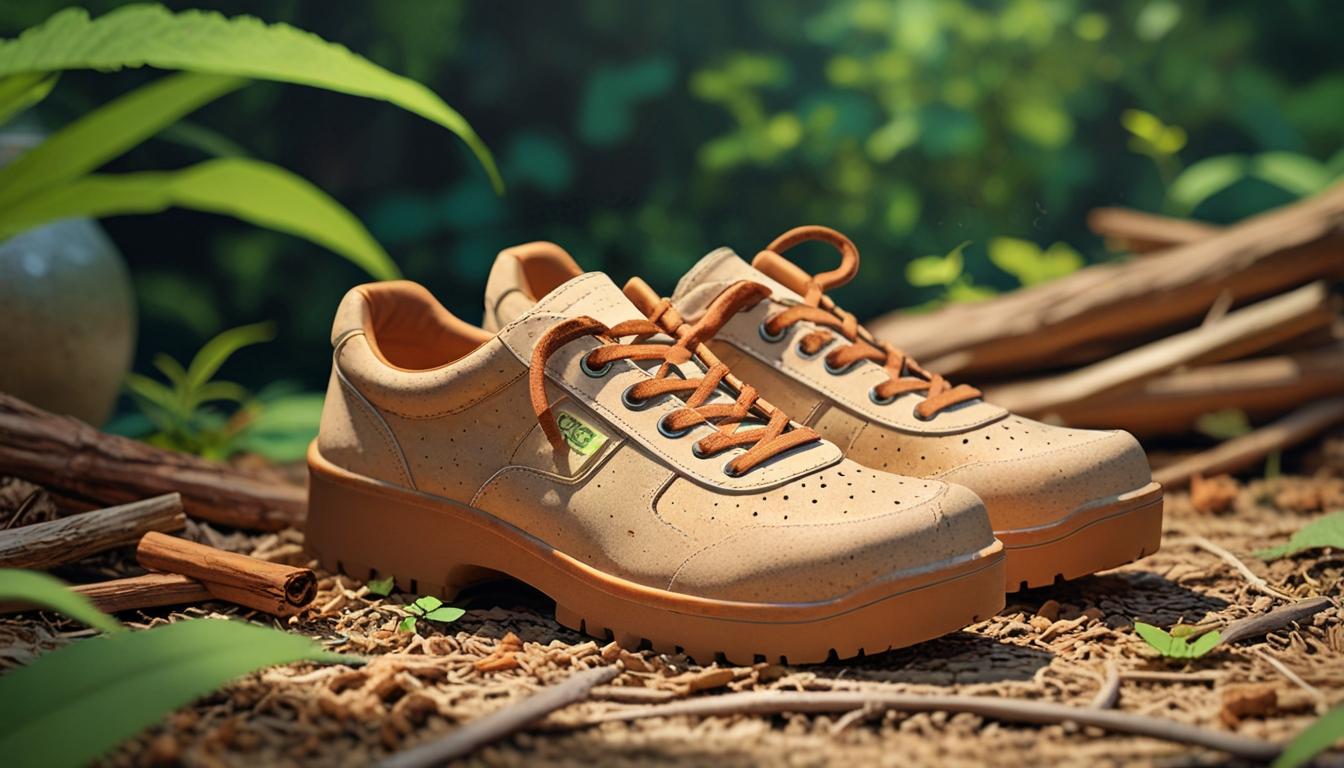Balena, an Israeli startup, launches shoes made from BioCir, a biodegradable plastic that decomposes under composting conditions, aiming to reduce the fashion industry’s massive plastic waste through a closed-loop, circular economy approach.
An Israeli startup named Balena has introduced a groundbreaking innovation aimed at addressing the growing environmental challenges posed by the fashion industry. The company has developed the world’s first fully compostable footwear, designed to reduce plastic waste that typically ends up in landfills.
Balena’s new shoes are made from BioCir, a pioneering plastic material engineered to stay durable and maintain its shape during use but to decompose under specific composting conditions. This decomposition process is triggered through interaction with certain chemicals and bacteria found in compost facilities, allowing the footwear to break down only when disposed of properly. This technology marks a significant advancement in waste management within the fashion industry, which is known for generating a substantial environmental footprint.
The first batch of these shoes, comprising 1,000 pairs, was launched in Tel Aviv. These shoes feature a distinctive cinnamon scent and are part of a closed-loop system that includes designated take-back points to handle worn-out shoes and ensure correct composting. This circular economy model exemplifies sustainable living by aiming to minimize waste and recover materials efficiently.
David Roubach, CEO of Balena, highlighted the need to move beyond traditional recycling, noting that only a small portion of clothing materials are currently recycled effectively. He stated, “The fashion industry generates an estimated 92 million tons of textile waste annually, and current recycling processes are insufficient.” Roubach envisions a future where biological recycling becomes standard practice, enabling products to return to their natural states and re-enter life cycles, inspired by nature’s own sustainable processes.
Balena’s mission extends beyond product innovation; the company seeks to scale its technology to mainstream markets and replace polluting plastics widely used in fashion. The startup operates within Israel’s high-tech sector, where climate technology initiatives are gaining momentum. Roubach expressed optimism about this trend, viewing it as a positive development that could bolster Balena’s efforts and catalyze broader adoption of sustainable practices in the industry.
By combining technological innovation with ecological consciousness, Balena offers a new model for the fashion industry to address waste at its source. Their compostable footwear represents both a product launch and a commitment to environmental sustainability, with potential implications for other sectors to follow.
The success of Balena’s footwear initiative will depend in part on how widely the technology is adopted and whether it can influence the broader industry towards sustainable production methods. The startup’s approach reflects growing global interest in climate-friendly solutions within fashion and beyond.
Source: Noah Wire Services





Heard about hm88game from a mate, decided to check it out. Honestly, not bad! The slots are pretty fun and registration was a breeze. Worth a look if you’re looking for a new spot to spin the reels. Check it out here: hm88game
Sige77login’s where it’s at for a quick game after work. Easy to get in, and the interface is pretty straightforward. Nice and simple. Check it out yourself: sige77login
Damanclubbet is alright, man. The interface could be better, but they do offer some nice bonuses and promotions. Haven’t had any problems cashing out, which is always a good sign. See what they offer: damanclubbet
Alright guys, trying out yolobettingsite. Heard good things about the odds. Let’s see if I can make some smart bets and come out on top. Wish me luck! More info here: yolobettingsite
Downloaded the 100jiliapp! Seems pretty slick so far, the interface is smooth. Will test it next week. Give it a shot, see if you can win!: 100jiliapp!
Yo, check out uuu555! Solid selection of games. I was skeptical at first, but I won a few bucks, so I’m happy. Give them a try! Learn more at: uuu555